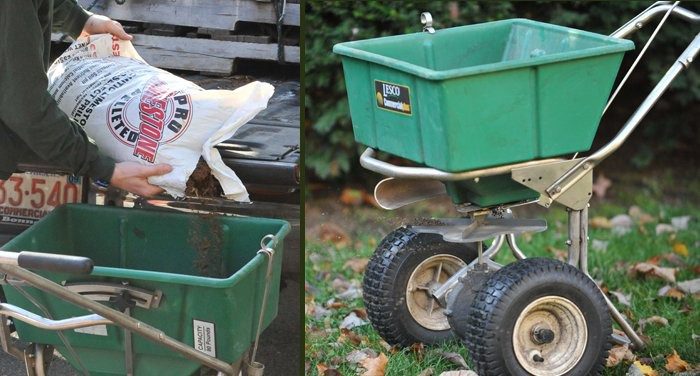LIMESTONE
Home / LIMESTONE

We add limestone to those lawns that require it to maintain the proper pH for turf growth. We did over 400 soil tests last year. Most soils that had been on the program and had the pH adjusted did well. A lot of the new lawns we tested were decidedly acidic. We really notice the difference in the health of a lawn with a decent soil pH. We test lawns yearly, and apply limestone, until they reach the desired range. After that we test every three years.
Limestone adds necessary calcium and magnesium to the soil while reducing acidity. Maintaining proper pH levels in your soil increases the availability of nutrients to your lawn and garden, allowing plants to grow to their full potential. We apply dolomitic limestone or calcitic limestone based on the soil test. The selection is based on your soil test, which tells us the acidity or alkalinity (pH) and the amount of nutrients. A good pH for lawns is between 6 and 7. Soils in areas with heavy rainfall and lots of trees, like New England, tend to have moderately acidic conditions. With all that rain, alkaline ions, like calcium and magnesium, tend to leach out of the soil and form acidic conditions.
Soil acidity or alkalinity affects the health of the lawn by influencing the availability of nutrients for uptake by the plant. Some nutrients won’t dissolve easily, and become plant available, if the pH isn’t right. Below pH 6.0, some elements like nitrogen, potassium and phosphorous, are less available. Limestone is an alkaline material that sweetens the soil.
The amount of magnesium and calcium is important because they are cations. Their relationship to each other and potassium and hydrogen affects the Cation Exchange Capacity. This is a measurement of the soil’s ability to hold and store nutrients. Quite simply, the magnesium should be 10 to 15%, calcium, 65 to 75% and potassium 2 to 7% of the base saturation of the cations. This balance is important to the health of soil and plants. It breaks down slowly in the soil, so it takes a while to work.
Limestone doesn’t change the pH immediately and if your soil requires a lot, we do two applications. It breaks down slowly in the soil, so it takes a while to work. Limestone also improves soil structure by stimulating biological activity in the soil. This helps form aggregates, reduces compaction and improves water retention.
